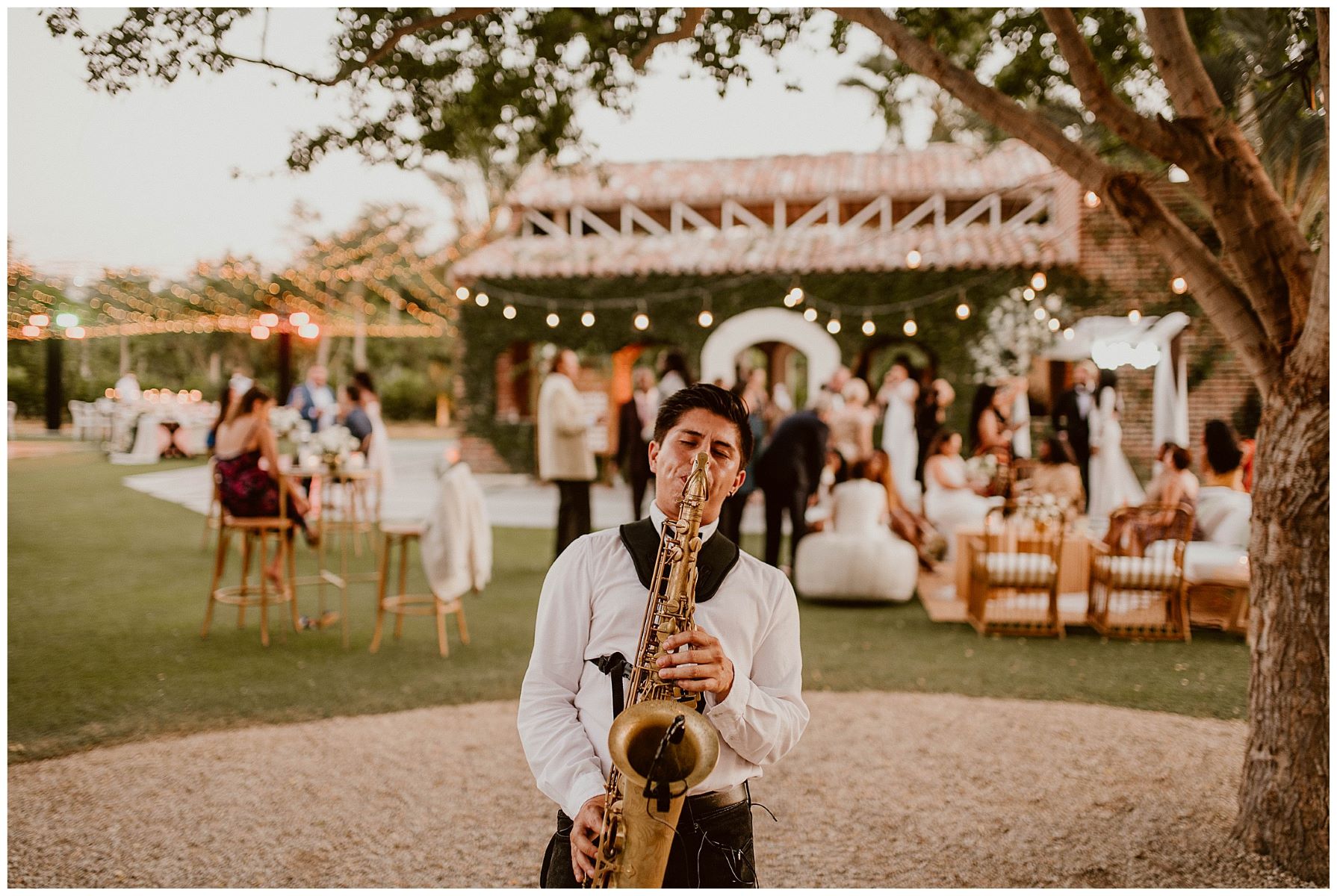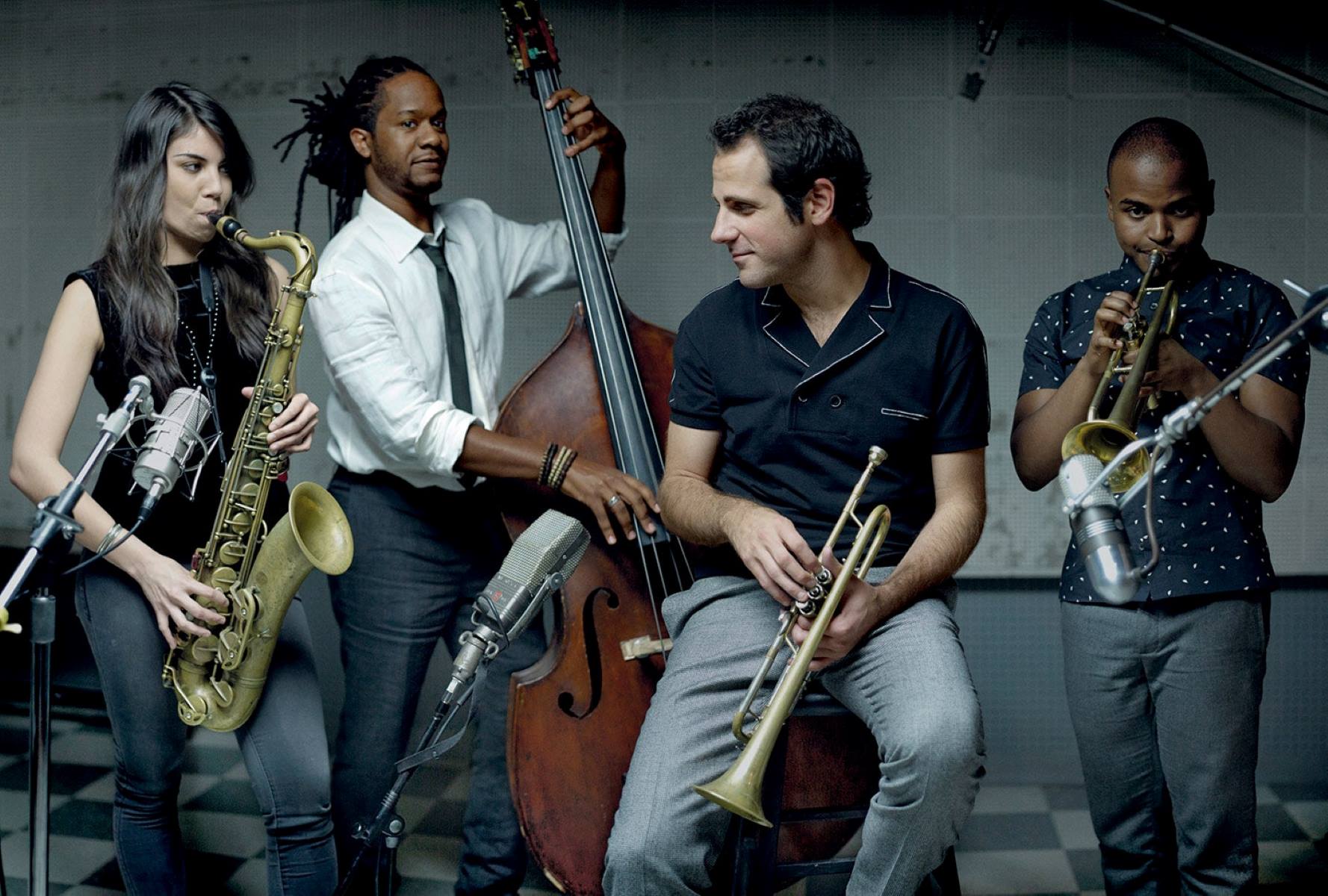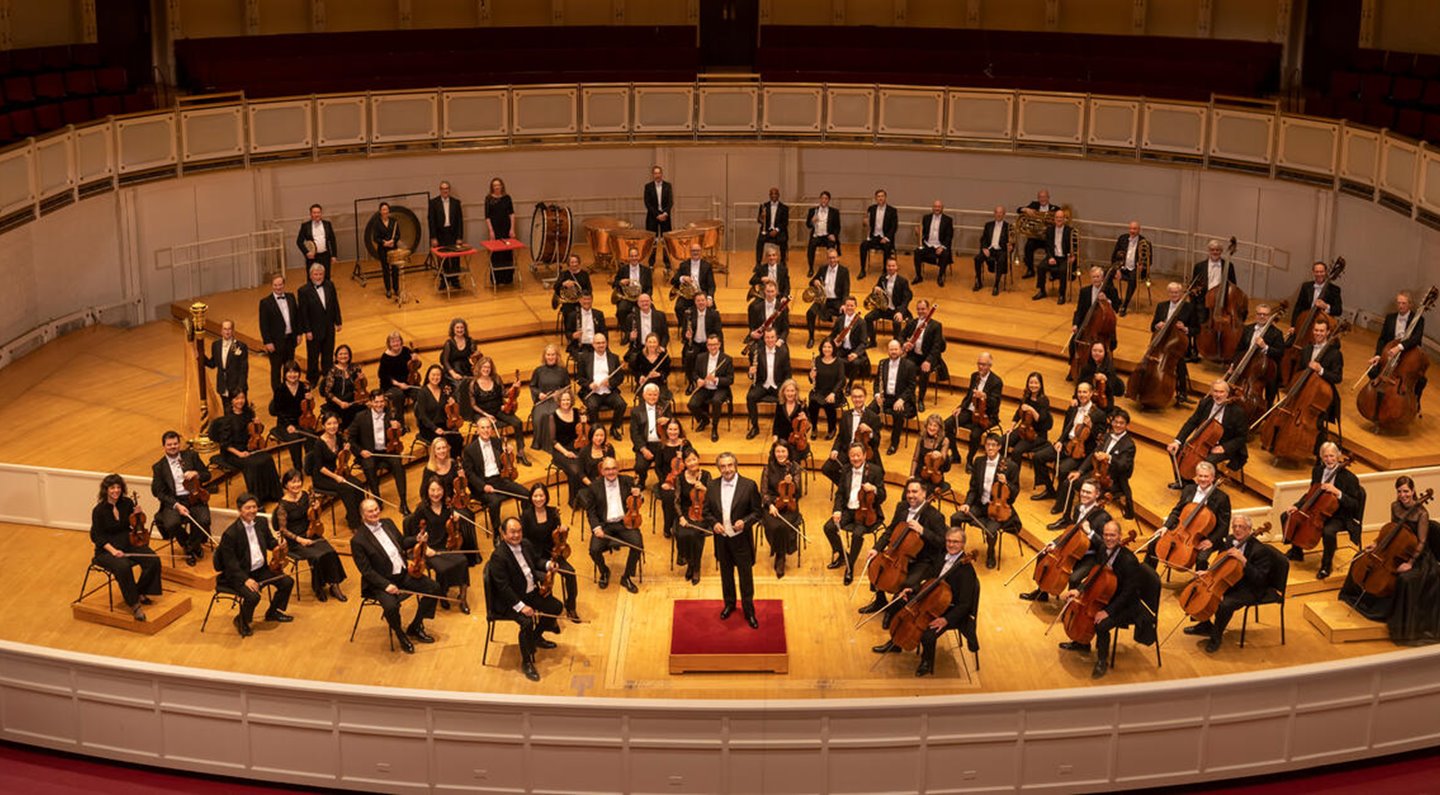Home>Production & Technology>Musician>How To Be A Wedding Musician


Musician
How To Be A Wedding Musician
Published: January 27, 2024
Learn how to become a skilled wedding musician and create memorable melodies for special moments. Find essential tips, advice, and resources to kickstart your music career.
(Many of the links in this article redirect to a specific reviewed product. Your purchase of these products through affiliate links helps to generate commission for AudioLover.com, at no extra cost. Learn more)
Table of Contents
- Introduction
- Getting Started as a Wedding Musician
- Choosing the Right Instruments for Weddings
- Building a Repertoire of Wedding Songs
- Networking and Marketing as a Wedding Musician
- Preparing for Wedding Performances
- Collaborating with Other Wedding Vendors
- Tips for a Successful Wedding Performance
- Handling Difficult Situations during Wedding Performances
- Conclusion
Introduction
Being a wedding musician is a unique and rewarding career path that allows you to showcase your musical talent while playing a significant role in the most important day of a couple’s life. Whether you’re a singer, instrumentalist, or part of a band or ensemble, providing the perfect soundtrack to a couple’s wedding celebration requires skill, professionalism, and a deep understanding of the role music plays in creating an unforgettable atmosphere.
In this article, we will explore the world of wedding musicianship and provide you with valuable insights and tips on how to navigate the industry successfully. From getting started as a wedding musician to choosing the right instruments, building a repertoire of wedding songs, networking and marketing, to preparing for performances and collaborating with other wedding vendors, we’ve got you covered.
So, if you’re passionate about music and looking to embark on a career where you can make a meaningful impact on people’s lives through your musical talents, read on to learn everything you need to know about becoming a wedding musician.
Getting Started as a Wedding Musician
Starting your journey as a wedding musician can be both exciting and overwhelming. Here are some essential steps to help you get started:
- Develop your musical skills: Before diving into the wedding music industry, make sure you have a strong foundation in your instrument or voice. Take music lessons, practice regularly, and strive to improve your technical abilities and musicality.
- Define your musical style: Determine the type of music you want to specialize in for weddings. Are you more inclined towards classical music, jazz, pop, or a blend of different genres? Identifying your musical style will help you attract the right clients and cater to their preferences.
- Build a repertoire: Create a diverse repertoire of wedding songs that cover various moods and moments of a wedding ceremony and reception. Include popular wedding classics as well as contemporary hits. This will ensure you can accommodate different requests and provide a memorable experience for couples and their guests.
- Invest in quality equipment: Ensure that you have reliable and high-quality instruments, microphones, sound systems, and any other equipment you may need for your performances. Investing in professional gear will contribute to your overall performance quality and leave a positive impression.
- Get experience: Start by performing at smaller events and gatherings to gain experience and build your confidence. Consider offering your services to friends and family for their weddings or volunteering to play at local events. This will not only help you refine your skills but also allow you to create a portfolio of your work.
Additionally, consider joining local music groups or ensembles to expand your network and gain exposure. Collaborating with established musicians can provide valuable insights and opportunities for growth.
Remember, building a reputation as a wedding musician takes time and dedication. Stay committed to honing your craft, delivering outstanding performances, and providing exceptional customer service. With persistence and a passion for music, you’ll be well on your way to a successful career as a wedding musician.
Choosing the Right Instruments for Weddings
When it comes to weddings, the choice of instruments can greatly impact the overall ambiance and atmosphere. Here are some factors to consider when selecting the right instruments for wedding performances:
- Consider the venue: Different venues have different acoustic properties, so it’s essential to choose instruments that will complement the space. For larger venues, orchestral instruments like violins or harps can create a grandiose and elegant feel, while smaller venues may call for more intimate instruments like acoustic guitars or pianos.
- Match the style of the event: The style and theme of the wedding should guide your instrument selection. For traditional weddings, classical instruments like a string quartet or a solo pianist can create a timeless and sophisticated atmosphere. In contrast, a more contemporary or casual wedding may lend itself well to acoustic guitars, saxophones, or even a jazz band.
- Consider versatility: Opt for instruments that can adapt to a wide range of musical genres and styles. This versatility is particularly important when you’re required to perform different genres throughout the wedding, from the processional and recessional to the cocktail hour and reception. Instruments like keyboards, guitars, or vocalists can seamlessly transition between different musical styles.
- Collaborate with other musicians: Depending on the size and complexity of the wedding, you may consider collaborating with other musicians to create a richer sound. Discuss potential instrument combinations with fellow musicians to determine what would work best for each specific performance.
- Consider logistics and practicality: Take into account the logistics involved in transporting and setting up your instruments. While larger instruments like a grand piano may create a stunning impact, they may not always be practical for every venue. Portable instruments like keyboards or smaller percussion instruments can offer more flexibility and ease of setup.
Remember, the key is to choose instruments that not only suit your musical style but also align with the preferences and vision of the couple. By carefully considering the venue, event style, versatility, collaboration possibilities, and practicality, you can select the perfect combination of instruments to create a magical musical experience on the couple’s special day.
Building a Repertoire of Wedding Songs
As a wedding musician, having a diverse and well-rounded repertoire of wedding songs is crucial. Here are some tips to help you build your collection:
- Research wedding music trends: Stay up to date with the latest wedding music trends by listening to popular wedding playlists, browsing through wedding blogs, and attending wedding fairs. This will help you identify the songs that are frequently requested by couples and ensure your repertoire is relevant.
- Include wedding classics: Every wedding has its timeless classics that never go out of style. Songs like “Canon in D” by Johann Pachelbel, “Here Comes the Bride” by Richard Wagner, and “At Last” by Etta James are perennial favorites. Make sure to include these beloved classics in your repertoire to cater to traditional wedding ceremonies.
- Variety is key: Aim to have a diverse range of songs that cater to different moods and moments throughout the wedding day. Include romantic ballads, upbeat dance numbers, and popular hits from various decades and genres. This way, you can cater to the musical preferences of the couple and their guests.
- Customize songs: Personalize your performances by offering customized arrangements of popular songs. This could involve adding unique musical twists or incorporating personal touches that symbolize the couple’s relationship. This will make your performances feel more special and memorable.
- Stay adaptable: Be prepared to learn new songs upon request. Couples often have specific songs that hold sentimental value to them, and being able to accommodate these requests can make a lasting impression. Maintain a list of songs you’re willing to learn, and be open to expanding your repertoire based on your clients’ preferences.
In addition to these tips, it’s also worth considering any cultural or religious musical requirements that may be specific to certain weddings. Taking the time to research and include appropriate traditional songs can help you connect with a wider audience.
Remember, building a repertoire is an ongoing process. Regularly update and refine your list of songs to ensure you stay current and meet the ever-changing demands of couples. By curating a diverse repertoire, you’ll be well-equipped to create magical musical moments that enhance the overall wedding experience.
Networking and Marketing as a Wedding Musician
Networking and marketing play a vital role in establishing yourself as a successful wedding musician. Here are some effective strategies to help you expand your network and attract clients:
- Create an online presence: Build a professional website that showcases your talent, repertoire, and previous performances. Include high-quality audio or video recordings to give potential clients a glimpse of your musical abilities. Utilize social media platforms like Facebook, Instagram, and YouTube to share your work and engage with a wider audience.
- Collaborate with other wedding vendors: Establish connections with wedding planners, photographers, event coordinators, and other vendors in the wedding industry. Offer your services for events they are involved in or participate in industry networking events. Developing these professional relationships can result in referrals and collaborations, expanding your reach and client base.
- Attend wedding fairs and showcases: Participate in local or regional wedding fairs and showcases to promote your music. Set up a booth or table with information about your services, and consider giving live performances to showcase your talent. These events attract engaged couples looking for wedding vendors, providing you with valuable exposure and potential leads.
- Ask for testimonials and referrals: Request feedback from satisfied clients and ask if they would be willing to leave a testimonial on your website or social media platforms. Positive reviews and word-of-mouth recommendations can significantly boost your credibility and attract more clients.
- Build relationships with wedding venues: Establish connections with wedding venues in your area and introduce yourself as a wedding musician. Offer to perform at venue open houses or showcase events to demonstrate your skills to potential clients. Building a strong rapport with venue managers can lead to referrals and recurring performances.
- Join wedding and music industry associations: Become a member of wedding industry associations or local musician unions. These organizations often offer networking events, educational resources, and opportunities for collaboration with other professionals in your field. Networking with industry peers can open doors to new gigs and collaborations.
Don’t forget to maintain professionalism and excellent communication with potential clients and industry contacts. Respond promptly to inquiries, be transparent about your services and pricing, and always strive to exceed expectations during performances. Building a reputation for reliability and exceptional service will go a long way in attracting new clients and fostering repeat business.
Remember, effective networking and marketing require consistent effort and a proactive approach. By implementing these strategies and staying engaged with the wedding industry, you’ll increase your visibility as a wedding musician and position yourself for long-term success.
Preparing for Wedding Performances
Preparing for a wedding performance is crucial to ensure a seamless and successful event. Here are some key steps to help you get ready for your wedding gigs:
- Communicate with the couple: Prior to the wedding, have a detailed conversation with the couple to understand their musical preferences, specific song requests, and the overall flow of the event. Clarify the timeline, special moments, and any unique requirements they may have. This will help you curate the perfect musical experience tailored to their vision.
- Coordinate with other wedding vendors: Reach out to the wedding planner, venue coordinator, and any other vendors involved in the event. Confirm details, discuss logistics, and ensure that everyone is on the same page. Collaborating with other professionals helps create a cohesive and well-coordinated wedding experience.
- Rehearse your repertoire: Regularly practice and rehearse the songs in your repertoire to ensure you’re comfortable performing them flawlessly. Pay attention to transitions between songs and work on creating a seamless, cohesive flow throughout the event. This will help you maintain a professional and polished performance.
- Prepare backup arrangements: Despite careful planning, unexpected situations can arise during a wedding. Always have backup plans in place, such as alternative song options, backup musicians, or backup equipment. This level of preparation will help you navigate any last-minute changes or challenges with ease.
- Visit the venue: If possible, visit the wedding venue ahead of time to familiarize yourself with the space. Take note of the acoustics, available equipment, and performance area. This can help you adapt your setup and performance to the venue’s unique characteristics.
- Set up a professional performance area: Arrive early on the day of the wedding to set up your instruments, sound system, and any other equipment required. Ensure that everything is in working order and that your performance area is visually appealing and well-organized. A clean and professional setup creates a positive impression for both the couple and their guests.
- Dress professionally: Your appearance as a wedding musician should be polished and appropriate for the event. Coordinate your attire with the couple’s desired dress code, whether it’s formal, semi-formal, or casual. Dressing professionally shows respect for the occasion and helps you blend in seamlessly with the overall wedding aesthetic.
By carefully preparing for your wedding performances, you’ll be able to deliver a memorable and captivating musical experience for the couple and their guests. Remember, attention to detail, effective communication, and thorough rehearsal are the keys to a successful wedding performance.
Collaborating with Other Wedding Vendors
Collaborating with other wedding vendors is a valuable opportunity to enhance the overall wedding experience and create a seamless, memorable event. Here’s how you can effectively collaborate with other vendors:
- Establish clear communication: Develop open and ongoing communication channels with other vendors involved in the wedding. Share information about the timeline, song choices, and any specific requirements to ensure everyone is on the same page. Regularly update each other on any changes or developments to maintain a cohesive approach.
- Coordinate the flow of the event: Work closely with the wedding planner or coordinator to synchronize the timing and transitions of the musical performances with other event elements. This ensures a smooth flow and avoids any awkward gaps or overlaps in the schedule.
- Provide information to vendors: Share details about your performance, including the duration of sets, any special requests, or cues that other vendors should be aware of. Providing this information in advance allows other vendors, such as photographers or videographers, to capture the important moments while ensuring they do not disturb the music.
- Collaborate on themed weddings: For themed weddings, collaborate closely with other vendors to create a cohesive atmosphere. Discuss the theme with the wedding planner, florist, and decorators to ensure that the music complements the overall ambiance. This synergy helps in delivering a truly immersive experience for the couple and guests.
- Offer referrals and cross-promotion: Recommend other vendors to your clients when appropriate, and ask them to do the same for you. Building a network of trusted professionals can lead to mutually beneficial collaborations and expand your client base. Cross-promotion through social media or website links can also help in reaching a wider audience.
- Attend vendor meetings and showcases: Take part in vendor meetings or showcases organized by wedding planners or industry associations. These events provide an opportunity to meet other vendors, exchange ideas, and forge valuable connections. Participating in collaborative styled shoots or showcase events can also give you exposure to potential clients.
- Show appreciation: Always express your gratitude to other vendors who contribute to the success of the wedding. A simple thank-you note or a kind gesture can go a long way in fostering positive professional relationships and encouraging future collaboration.
Collaborating with other wedding vendors not only enhances the overall quality of the wedding but also opens doors to new opportunities and referrals. By establishing effective communication, coordinating the event flow, and embracing collaboration, you’ll contribute to a seamless and unforgettable experience for the couple and their guests.
Tips for a Successful Wedding Performance
A successful wedding performance goes beyond just playing the right notes. It involves creating a captivating and memorable experience for the couple and their guests. Here are some tips to ensure a successful wedding performance:
- Be prepared and professional: Arrive early, well-prepared, and dressed appropriately. Set up your equipment in a timely manner and conduct yourself professionally throughout the event. Your punctuality and professionalism will leave a positive impression on the couple and their guests.
- Read the crowd: Pay attention to the vibe of the crowd and adjust your song choices and performance accordingly. Gauge what songs are resonating with the audience and adapt to their musical preferences. This will help create an engaging and enjoyable experience for everyone.
- Interact with the audience: Engage with the crowd between songs and encourage interaction. This can include inviting guests to sing along, encouraging them to dance, or even taking requests if you’re comfortable with it. Making the guests feel involved and connected will enhance their enjoyment of the performance.
- Vary your tempo and energy: Keep the energy levels dynamic throughout your performance. Balance slower, romantic songs with higher-energy numbers to provide a varied and engaging musical experience. This will keep the atmosphere lively and prevent monotony.
- Be adaptable: Be prepared to adjust to any last-minute changes or requests from the couple or the event coordinator. Flexibility is key in ensuring a smooth and stress-free performance. Have backup songs ready in case of unexpected requests or improvisation needs.
- Maintain a positive attitude: Your attitude can greatly impact the overall atmosphere of the wedding. Stay positive, friendly, and approachable, even if faced with challenges or unexpected situations. A positive demeanor will create a warm and welcoming environment for the couple and their guests.
- Work with the wedding planner or coordinator: Collaborate closely with the wedding planner or coordinator to sync your performance with other event elements. Communicate your cues or timings and maintain a good working relationship with them throughout the event. This collaboration will ensure a seamless flow of the wedding day.
- Strike the right volume: Be aware of the volume level of your performance, especially during important moments like speeches or the ceremony. Ensure that you’re not overpowering other elements, such as the couple’s vows or the DJ’s announcements. Striking the right balance will enhance the overall experience for everyone.
Remember, a successful wedding performance is not just about the music; it’s about creating an atmosphere and providing an unforgettable experience. By being prepared, adaptable, engaging, and maintaining a positive attitude, you’ll leave a lasting impression and contribute to a truly magical wedding celebration.
Handling Difficult Situations during Wedding Performances
Wedding performances can occasionally present challenging situations that require quick thinking and adaptability. Here are some tips to help you navigate and handle difficult circumstances during your wedding performances:
- Technical difficulties: Prepare for potential technical issues by having backup equipment and troubleshooting solutions readily available. Familiarize yourself with your gear and practice troubleshooting techniques so that you can resolve any technical difficulties efficiently without disrupting the flow of the event.
- Dealing with demanding clients: Occasionally, you may encounter clients with specific and demanding requests or high expectations. It’s important to listen actively, be empathetic, and communicate openly. Offer reassurance and find solutions that meet their needs while being aware of your own limitations. Strive to provide excellent customer service while maintaining the integrity of your musical abilities.
- Handling inappropriate song requests: If a guest makes an inappropriate song request or asks for a song you’re not comfortable performing, politely and professionally explain that you are unable to accommodate their request. Have a list of appropriate alternatives ready to keep the atmosphere positive and inclusive.
- Dealing with schedule changes: Weddings are dynamic events, and last-minute changes in the schedule are not uncommon. Stay flexible and adapt to any schedule changes communicated by the couple, wedding planner, or event coordinator. Be prepared to adjust your performance times, song choices, or even the duration of your sets to accommodate these changes.
- Managing challenging or uncooperative guests: Occasionally, guests may be disruptive during your performance. Stay focused and professional, continuing your performance without engaging directly with the disruptive individuals. If necessary, inform the couple or the event coordinator discreetly, and allow them to handle the situation. Your role is to maintain a positive atmosphere, so avoid confrontations that could escalate the situation.
- Dealing with unexpected interruptions: In the event of unexpected interruptions, such as a power outage, inclement weather, or other unforeseen circumstances, remain calm and composed. Communicate with the wedding planner or coordinator to assess the situation and find alternative arrangements if needed. Remember, your professionalism and ability to adapt to unforeseen circumstances will leave a lasting impression on the couple and their guests.
- Responding to criticism: It’s possible that you may encounter criticism during or after your performance. Respond gracefully, thanking the individual for their feedback and offering to address their concerns. Use the feedback constructively to improve your future performances. Remember, not every comment will be positive, but staying professional and open-minded will help you grow as a wedding musician.
Being prepared for and adaptable to difficult situations is an essential skill for any wedding musician. By staying calm, maintaining professionalism, and finding appropriate solutions, you can overcome challenges and continue providing a remarkable and memorable musical experience for the couple and their guests.
Conclusion
Becoming a successful wedding musician requires a combination of musical talent, professionalism, and the ability to create enchanting experiences for couples and their guests. We’ve explored various aspects of being a wedding musician, from getting started and choosing the right instruments to building a repertoire and effectively marketing your services. Additionally, we’ve discussed the importance of collaborating with other vendors and handling difficult situations that can arise during wedding performances.
As you embark on your journey as a wedding musician, remember to continuously develop your musical skills, refine your repertoire, and stay up to date with the latest wedding music trends. Foster strong relationships with other wedding vendors, communicate effectively, and maintain a professional and positive attitude throughout the planning and execution of wedding performances.
By embracing these tips and strategies, you can create mesmerizing musical moments that enhance the joy and celebration of weddings. Your ability to provide an unforgettable experience for the couple and their guests will set you apart as a sought-after wedding musician.
So, whether you’re strumming a guitar, playing the violin, or enchanting with your vocals, embrace the opportunity to be a part of one of the most special days in a couple’s life. Your musical talents can make a significant impact and create lifelong memories for those you perform for. Embrace the journey, hone your skills, and let your passion for music shine as you embark on your career as a wedding musician.











